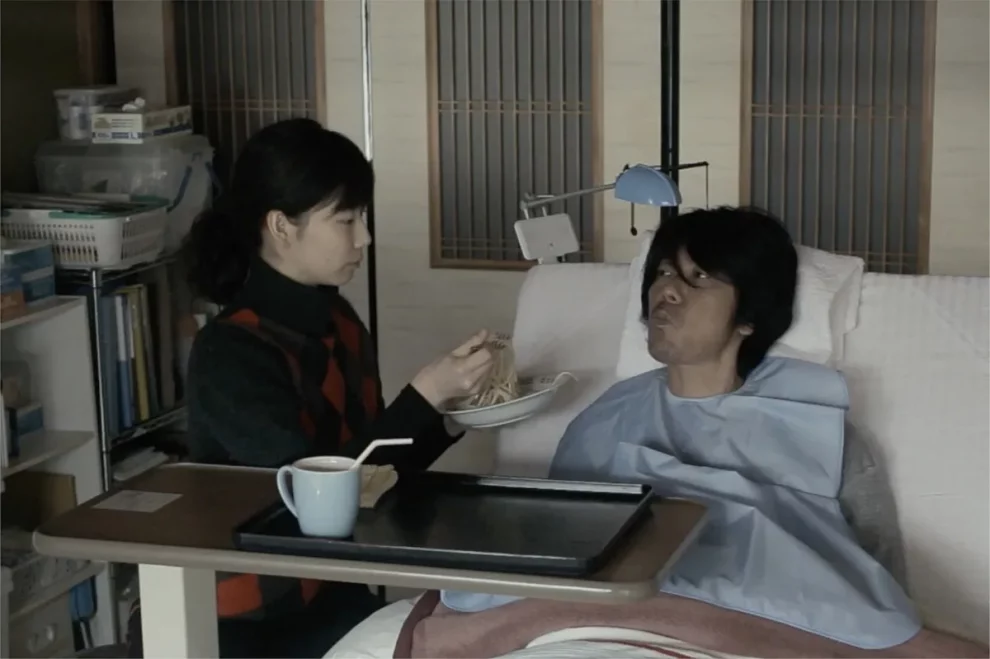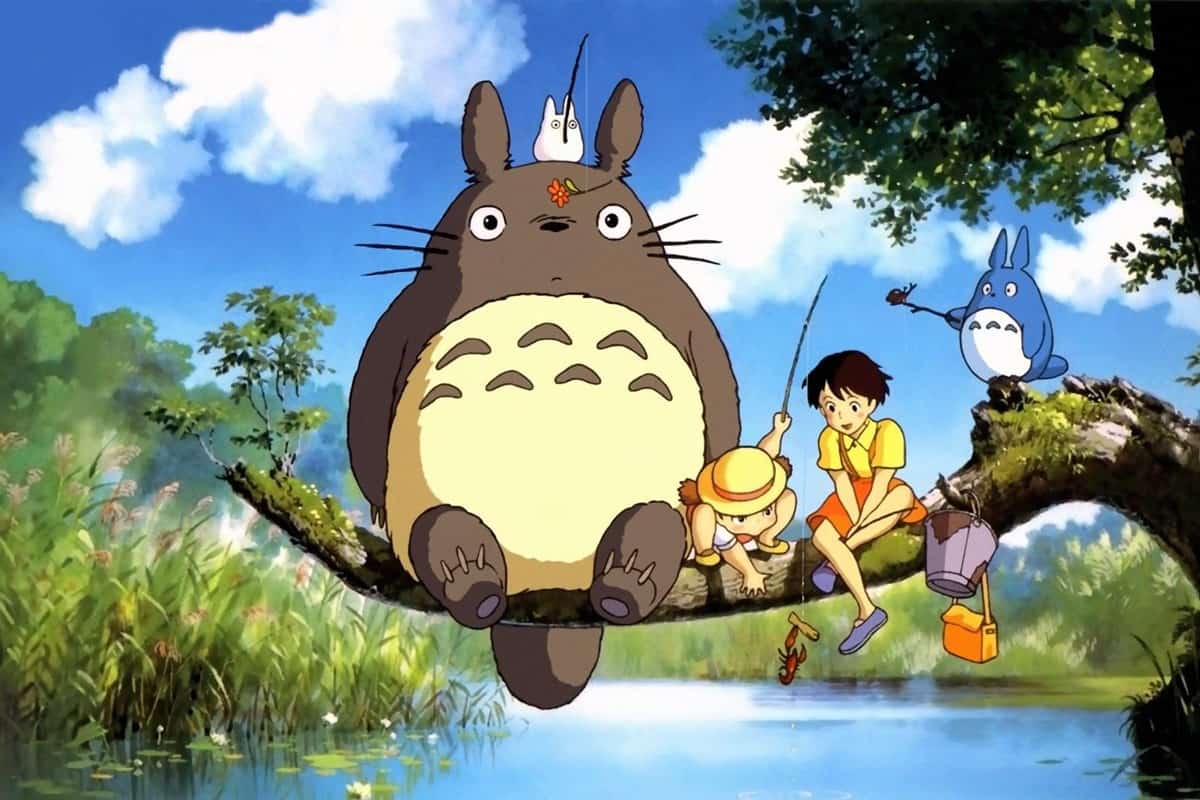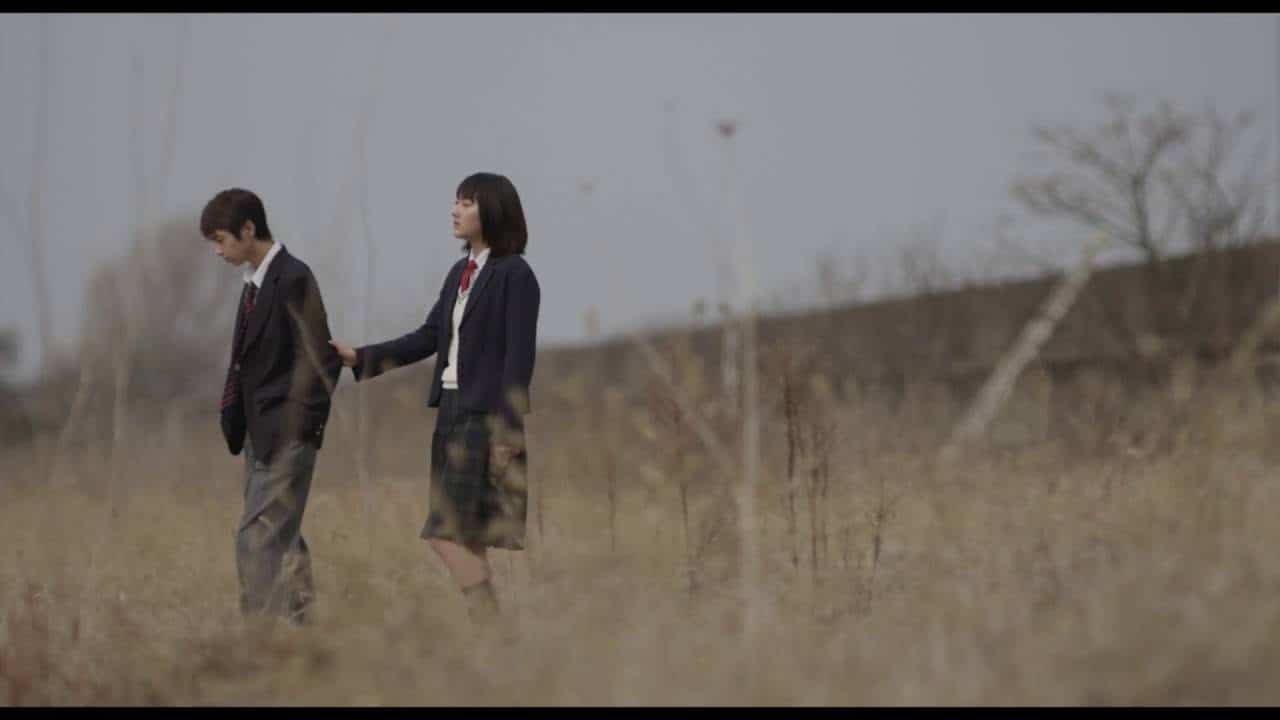Part of a project for students at the Kyoto University of Arts, produced by Kaizo Hayashi, Keita Fujimoto's debut feature offers a different perspective on the concepts of disability and caretaking, through an approach that is both romantic and realistically pointy.
“Just the Two of Us” is screening at Nippon Connection
Set in Kyoto's Nishijin district, the film revolves around Shunsaku, a man who has been bedridden since a terrible accident took place, leaving him with only his father, elderly Gohei, to take care of him. Gohei has repeatedly tried to bring in caretakers, but Shunsaku's reaction is always to utter the most obscene things to those women who apply for their job, essentially chasing them away with his words. Gohei eventually discusses his problem in a radio show, which is where Hanae, a blind but very beautiful young woman, hears of it and decides to take up the job, also because finding anything else to do has been impossible until that moment. Despite her frustrations with Shusaku's ill-nature and verbal abuse, she stays on, and the two eventually start connecting, with the girl becoming part of the family. The problems the two face, however, do not stop, and when his relatives start being involved and a secret Hanae was hiding comes to the fore, everything they have managed is in jeopardy.
As expected with the particular theme, Keita Fujimoto directs a film that moves rather slowly, essentially mirroring the life of the two protagonists, in a style that definitely takes some getting used to, but also fits the overall aesthetics of the movie. As such, Jun Kuriyagawa and Kan Suzuki's editing emerges as quite fitting, despite the fact that the lagging that appears in most Japanese productions lately is here once more, particularly close to the end. The prowess also extends to the cinematography, with Futa Takagi creating a bleak visual world, filled with saturated colors, that essentially fits the “perspective” of the two protagonists.
The overall story seems a bit far-fetched, but allows Fujimoto to present both a captivating scenario and also to make a number of social comments, mostly revolving around people with incapacities. The stigma these people carry, particularly in a society as the Japanese where people are “judged” based on what they can offer to their family, company and society, is the most central one here, which is what Shunsaku is experiencing essentially, an acknowledgement that has made him as bitter as his sickness has. The fact that both these incapacitated people find solace to each other, and a reason to face the world, emerges as somewhat romanticized, but Fujimoto takes care of not going overboard with the idealism, realistically exhibiting the issues such a couple would face, even when going for a simple stroll.
Also of interest here is a subtle comment on Confucianism, particularly regarding women, with Shohei at one point introducing Hanae as his daughter, Shunsaku as his wife, and even the latter's only friend, Goto, as his girlfriend. The way Hanae reacts in amusement in these cases, is one of the most delightful elements in the movie, but also quite indicative of the place women in Japan inhabit. Furthermore, Fujimoto also comments on the ways peripheral family members can cause problems, with Shunsaku's aunts essentially emerging as the villains here, a notion that is heightened even more by their rather theatrical way of acting. Hanae's secret adds to the entertainment the movie offers, while explaining her reasoning to a point, but at the same time also moves the narrative to melodramatic paths, in a way that was not necessary, considering the overall premises of the movie. The same applies to the ending, which is realistic to some point, but also pessimistic in melodramatic terms.
Masatoshi Nagase as Shunsaku gives a great performance, highlighting his inner struggle and his longing for something different under his offensive words, while the way he mellows to Hanae is a true treat to watch. Shiori Doi as Hanae is equally great, with her overall measured and laconic performance stressing the moments she lashes out even more, in some of the most memorable scenes in the movie. At the same time, the chemistry of the two is excellent, also due to the way they present the few humoristic moments in the movie.
“Just the Two of Us” is a bleak movie, it could not have been otherwise considering its theme, but is also quite realistic in its comments and entertaining through its story and overall acting, thus raising much higher than any issues found here.

















